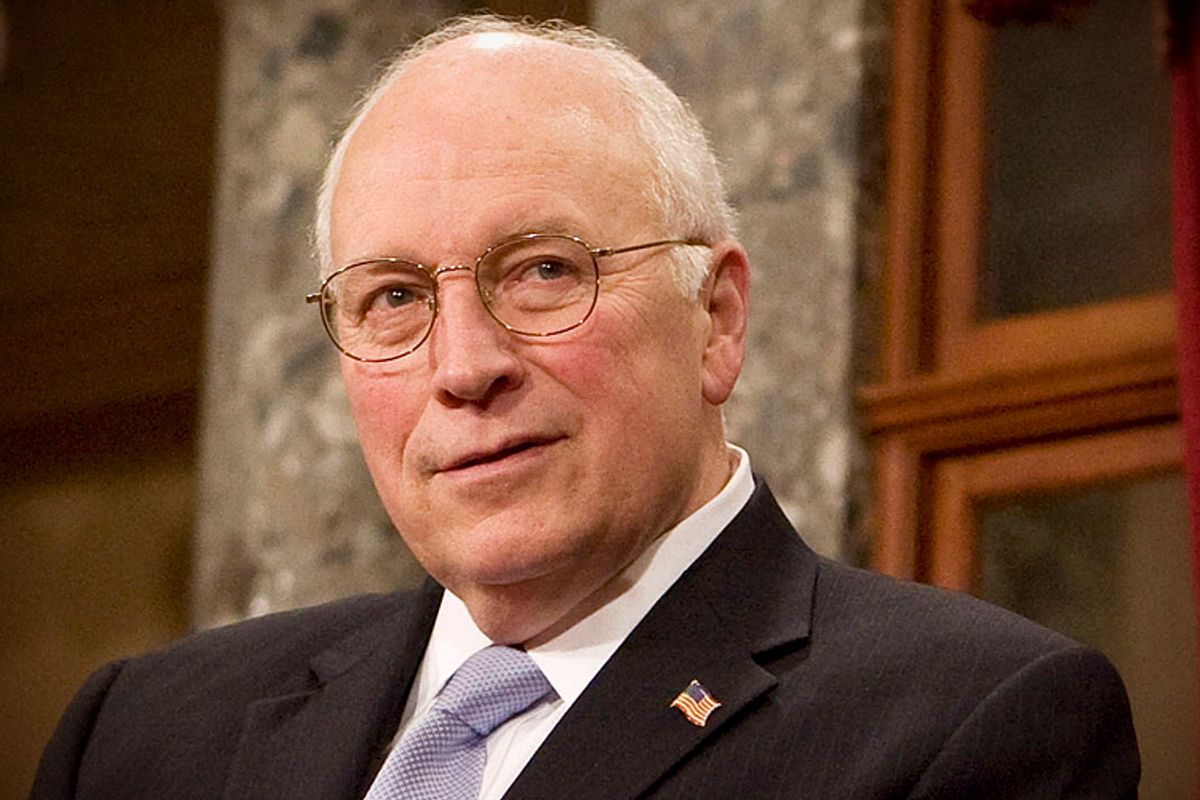To anyone who lived through the 2003 invasion of Iraq, which led to an occupation that lasted nearly a decade, cost us more than $2 trillion, and led to the deaths of an estimated 500,000 people, it may seem unthinkable that the sordid details of how the war began could ever be forgotten. But 11 years after the first bombs fell on Baghdad, the story of that war is already in danger of being replaced by a more politically palatable fairy tale.
On Wednesday, President Obama told a European audience that America’s invasion of Iraq was different than Russia’s invasion of Crimea because America “sought to work within the international system.” Distinguishing the American war from Vladimir Putin’s crass grab for land, Obama explained: “We did not claim or annex Iraq’s territory, nor did we grab its resources for our own gain. Instead, we ended our war and left Iraq to its people and a fully sovereign Iraqi state could make decisions about its own future.”
While there is nothing technically untrue in Obama’s remarks, they are profoundly misleading. They amount to a bowdlerized version of the war, in which the most distasteful aspects of our invasion have been omitted.
It is disingenuous to say that we “sought to work within the international system” without noting that we subsequently went to war in flagrant violation of international law. Even one of the war’s chief architects admitted that the invasion was not strictly legal. Richard Perle, one of the Pentagon’s most eager advocates of war on Iraq, said in November 2003 that international law “would have required us to leave Saddam Hussein alone” and that “in this case international law stood in the way of doing the right thing.” Even if the Bush administration would have preferred to go to war with the support of the United Nations, the fact remains that they went to war without it. Saying that the United States “sought to work within the international system” before invading Iraq is like praising a burglar because he checked to see if your door was unlocked before breaking a window.
The consequences of this reckless act go far beyond the awful human cost of the Iraq War. Our invasion of Iraq undermined the authority of the United Nations and created a dangerous precedent for other preemptive wars. U.N. Secretary-General Kofi Annan called Bush’s war a “fundamental challenge” to the core principles of the United Nations and warned that it “could set precedents that [result] in a proliferation of the unilateral and lawless use of force, with or without credible justification.” Putin himself, in defending his actions in Crimea, cited the record of the United States in Iraq, Afghanistan and Libya.
It is equally misleading to say that America “did not claim or annex Iraq’s territory” or “grab its resources for our own gain.” No, the United States did not literally profit from the war, but the defense contractors we hired to fight for us during the protracted occupation made billions, and concern about Iraq’s most significant resource — oil — played a major role in the neoconservatives’ obsession with overthrowing Saddam. Likewise, the line between “annexing” a piece of territory and invading and occupying it for nearly nine years is a distinction without a difference. Even Obama’s hopeful conclusion about Iraq’s ability to “make decisions about its own future” smacks of wishful thinking. On paper, Iraq has a democracy; in practice, we left them with one of the most corrupt and incompetent governments in the region — hardly an achievement we should be proud of.
So far, the most obvious difference between the invasion of Iraq and the invasion of Crimea is that one of them has resulted in hundreds of thousands of deaths. But Obama did not mention this. Instead, this intelligent and thoughtful man — himself a critic of the invasion — found himself compelled to insist that the Iraq War, however unwise, was defensible in a way that Russia’s shabby Crimean adventure was not.
It is always tempting for Americans to believe that their own motives are somehow purer and nobler than those of others, and that we can be trusted to act selflessly in a way that other nations cannot. When John Kerry condemned Russia for “invading another country on [a] completely trumped-up pretext,” he seemed completely unaware of the irony. But this is a dangerous fantasy.
When we allow ourselves to become seduced by the idea of our exceptionalism, we find ourselves making excuses for even our worst mistakes. Eventually, we start to believe that those mistakes were not really such terrible mistakes — we meant well, after all. During the Vietnam War, its critics often denounced the war as criminal and immoral; decades later, we are more likely to remember it as a “blunder” or a “tragedy.” We are also more likely to blame the people who demonstrated against the war than the people who led us into it.
In time, we forgot the lessons of that war. Not all wars are like Vietnam, we told ourselves — and stumbled headlong into the twin disasters of Iraq and Afghanistan. Cleaning up the history of the Iraq War might make us feel better about ourselves, but it deprives us of the lessons we might learn from an honest version of that history — and sets us up for further calamities.

Shares